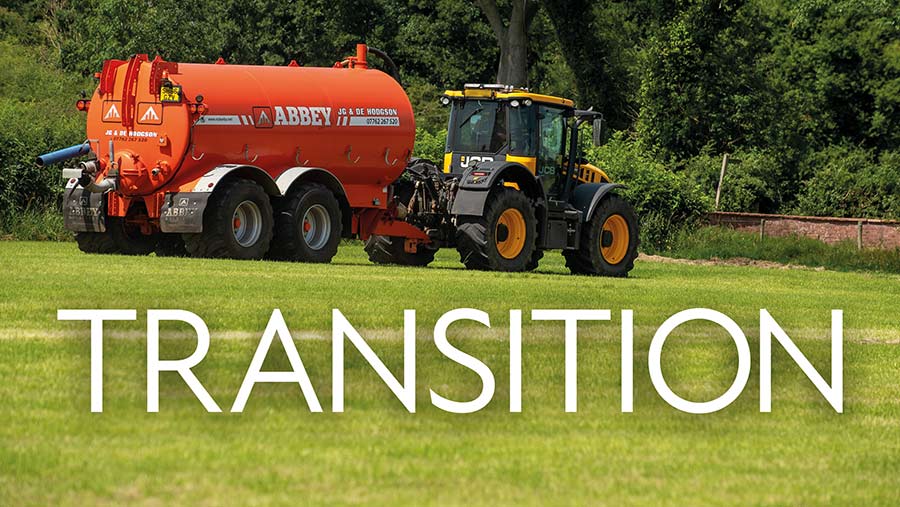FW Opinion: How will you survive when subsidies are gone?
 © Angus Findlay
© Angus Findlay This week marks the web and magazine launch of Transition, a a major new initiative from Farmers Weekly that will, over the next year, also include a series of webinars and a monthly podcast.
The overarching purpose of this extra content is to accompany farmers as they move away from the Basic Payment Scheme and towards a future where public money will mainly be used for delivering environmental goals.
Although each of the four UK nations are now setting themselves on different paths and at different paces, the era where direct payments can be relied on is at an end for everyone.
See also: FW Opinion: Red Tractor needs to win hearts as well as heads
The Westminster government has only guaranteed to maintain farm funding at its current level until the end of this parliamentary term.
While agriculture is a devolved issue, if that budget is cut, it’s highly likely that the other nations will also have to reduce their farm budgets for farmers in Wales, Scotland and Northern Ireland.
As these administrations’ plans are less advanced than in England, these cuts would likely be imposed over a shorter period.
This means wherever you are based, now is the time to start planning how your business will survive without area payments.
For some it will be incremental changes; for others more radical action may be called for – sharing machinery and labour, creating a new enterprise, shutting one down or even retirement.
There is still so much we don’t know, particularly about how financially helpful future environmental schemes will be, although Defra secretary George Eustice has pledged there will be a profit element built into English schemes.
The only thing that can be said for certain is this: If your profit figure is smaller than your basic payment, something will very likely have to change if you want to stay afloat by the end of the decade.
In his book, 33 Strategies of War, author Robert Greene defines the difference between a risk and a gamble. Both, he says, are actions with a chance of success – a chance that is heightened by acting with boldness.
However, with risk you can recover if you lose, while with a gamble the stakes are higher. Defeat can lead to problems spiralling out of control – if you encounter difficulties and you cannot afford to lose, attempts to rescue the situation can mean going deeper into a hole.
All farming businesses take calculated risks. Every time a seed is pushed into the ground, or the decision is made to lamb another season, none of us can foresee how the crop or flock will perform and what it will market for.
In sectors with poorer returns, or for poorer businesses in any sector, subsidy transformed what would have been a gamble into a more moderate risk.
Without that safety net, good farmers in the future will need to have a good sense of what is a worthwhile risk, and what is an unacceptable gamble.
The industry around them will need to do more to reduce risk for the primary producer, as they have done for themselves.
And all that will have to be delivered while helping tackle the climate crisis by minimising the effects of food production on the environment.
Preserving as many viable businesses as possible in the countryside is a public good – and so is promoting as many diverse ways to achieve financial and environmental success as possible.
I hope Transition is a helpful tool to achieve this. There are many opportunities ahead, too – let’s grab them.

